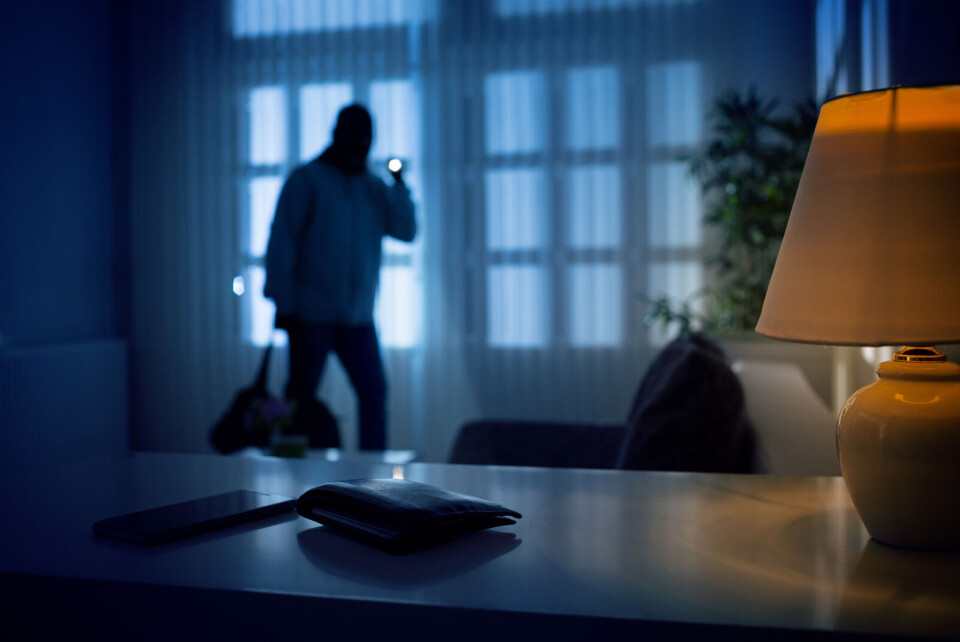-
Explained: how to register a classic car in France
It is relatively straightforward to get a carte grise véhicule de collection for your vehicle
-
How to fit in when you move to France: avoid that ‘expat bubble’
After two decades in central Brittany, Jill Fitzgerald O’Connor wants to help other movers feel part of their new community
-
How to save money on fashion and clothes in France
Growing number of second-hand shops are selling clothes by weight
What to do (and not to do) after a home burglary in France
Around 596 break-ins are reported daily

It is every homeowner or tenant's nightmare: you arrive at your property to find the back door has been forced open and a cautious entry into the house reveals upended drawers and their contents spewed out over the floor.
Unfortunately, this scenario happens far too frequently in France - with an average of 596 burglaries taking place every day.
How many home burglaries are reported in France annually?
A total of 217,600 burglaries were reported in 2023 according to figures released by the French Interior Ministry in January 2024.
In comparison, 273,076 burglaries were reported in England and Wales during the same period according to data from the UK Office for National Statistics.
These figures have been rising for the past two years, following a sharp decline in 2020 during the Covid-19 pandemic.
When and where do burglaries take place in France?
Burglaries “always rise significantly in August when people go on holiday,” says the Interior Ministry report.
Paris, Marseille (Bouches-du-Rhône) and Bordeaux (Gironde) are the three most-burgled areas, however, the rate is also rising in the countryside.
Read more: Burglaries in rural France: areas most at risk and tips to avoid
7 essential things you must do following a burglary
1. Call the Police
The sooner you call the police, the greater chance that the burglar might be caught. The correct number for this service is 17 or 112. The number 17 will put you directly through to the appropriate emergency police service nearest to your home, which could be either the Police nationale if you live in an urban area, or the Gendarmerie if you live rurally. Meanwhile, 112 is a European emergency services number for fire and rescue, police, and ambulance services. You can also contact the police by text message on 114.
2. Do not touch anything
It’s important that you do not touch anything which could be used as forensic evidence against the burglars. For example, there might be vital fingerprints or footprints on your doors and floors, so however messed up your house looks, do not be tempted to clean up until the police have arrived.
3. File a police report
Once the police have come to your property you will be able to file a complaint at which point the police investigation can begin. Once you have filed the complaint you will be given a receipt, which will be needed to make your insurance claim.
To save time, victims can log a complaint online here.
Once this has been completed, you must go to your nearest police station to sign the document and pick up the receipt. This cannot be done online.
4. Notify the bank
If your bank cards, checkbook, or other means of payment have been stolen you are advised to cancel them at your bank. Regardless of which company you bank with, you can call the number 0 892 705 705, which offers a service to immediately stop payment on your bank cards, or 0 892 68 32 08 which stops payment on cheques.
5. Secure your home
Once the police have been, make sure you fix any broken windows, doors, or locks so that opportune thieves can not return. In order to do this, you might need to get hold of a locksmith (un serrurier), of which you will find many local companies on the internet. To make sure that you enlist the help of a trustworthy locksmith, it is advisable to check with your friends, neighbours, or even your insurance company, who will have a list of reputable companies to contact.
6. Call your insurers within 2 days
Most insurance policies stipulate in their general conditions that "the theft must be declared at the latest within two working days following the date on which the insured became aware of the loss, any late declaration, except in the case of fortuitous events or force majeure, may result in a forfeiture of coverage."
According to the government’s www.service-public.fr website, this declaration should be made in a letter that is sent by recorded delivery, with acknowledgment of receipt.
Within the declaration, you must list all the objects that were stolen or damaged, and provide their value. This will be used to evaluate how much money you receive. If you do not agree with the expert’s evaluation, it is possible to enlist an expert of your choice to carry out a counter-assessment.
The insurers will also need to see a copy of the initial crime report filed to the police.
7. Inform your landlord or property management agent
If you live in a rented property or own a flat in a building owned and managed by a property agent, you must let the owner know that you have been the victim of a burglary. They will need to inform their own insurer and may be able to make a claim.
Related articles
New national burglary figures: How does your area of France fare?
























